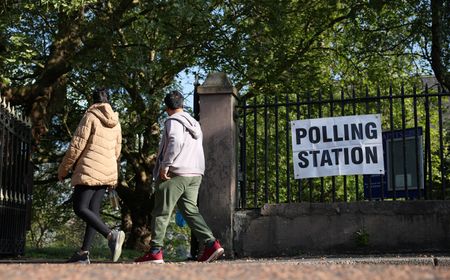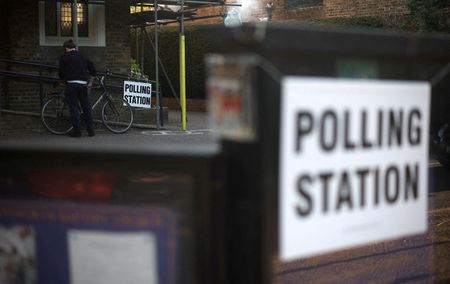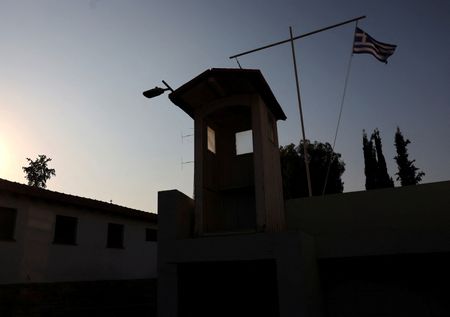LONDON (Reuters) -Britain on Thursday set out plans to lower the voting age to 16 in a landmark reform to the process that underpins one of the world’s oldest parliaments.
Who can currently vote?
At present, anyone aged 18 or over can vote in UK general elections if they are a British citizen, a qualifying citizen from the Commonwealth group of former British colonies, or a citizen of Ireland, and are registered to vote.
Members of the upper house of parliament and convicted prisoners serving a sentence are excluded from the franchise.
When did parliament get elected representatives?
In 1295, the English parliament, then made up of nobles and bishops, was extended to include elected representatives, setting the model for future parliaments.
How was the electorate restricted?
In the 15th century, the vote in England was restricted to men who owned freehold land worth at least 40 shillings, narrowing the electorate to wealthy landowners.
The English and Scottish parliaments passed a law in 1707 uniting the two countries into one sovereign state called Great Britain. At this time, the right to vote was still severely restricted.
About a century later, Ireland merged into Great Britain to form the United Kingdom of Great Britain and Ireland.
When was the first UK election?
The first ever UK general elections ran from July 5 until August 14 in 1802.
In 1832, the vote was extended to more men by a broadening of the property qualification, while parliamentary seats were redistributed to better represent rapidly growing towns and cities.
But the legislation defined a voter as a male person, formally excluding women from voting in elections. Before that, there were occasional instances of women voting.
When did women get the vote?
Women were granted the right to vote in stages, starting in 1918 when women over the age of 30 who owned a property or were married to a property owner were given the right. All men over the age of 21 were also given the vote at this stage.
Ten years later, the vote was finally extended to all women over the age of 21, before the age was lowered to 18 for both men and women in 1969.
What earlier efforts were made to move the age under 18?
A bill to reduce the voting age to 16 failed to pass due insufficient parliamentary support in 2008.
Proposed legislation giving 16- and 17-year-olds the right to vote in Scottish parliamentary and local elections was passed by the Scottish Parliament in 2015, broadening the electorate in Scotland’s devolved administration.
Four years later, the Welsh Parliament followed with a similar bill, marking the largest franchise extension in Wales since 1969.
Which countries have lowered the age below 18?
If the plan to lower the age to 16 is passed, Britain would be on par with Austria, Nicaragua, Argentina and Malta, according to U.S.-based research group World Population Review. The age is still 18 to vote in a national election in most major economies, from the United States and Germany in the west to China and India in the east.
What were other notable reforms to the UK system?
The state began cracking down on illegal practices, such as bribing, in the voting system as early as 1872, through the Secret Ballot Act, enabling people to vote in private without being intimidated into voting for a particular party.
Before the turn of the century, attempts to bribe voters were criminalised, with more severe fines and in some cases imprisonment set as punishment.
In 2022, Boris Johnson’s government introduced a requirement for voters to show photo ID while voting to crack down on possible voter fraud.
(Reporting by Muvija M; Additional reporting by Sam Tabahriti; Editing by Andrew Heavens)











